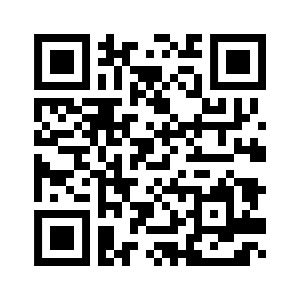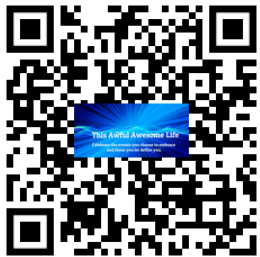I finally seize an opening in my ex’s gloomy monologue on the ruined state of the country. “Suze, I’d better get going.”
“Of course.” She grimaces. Polite resignation. What did I expect, coming here? She’s erected a fortress around her sadness. The sky is darkening as I back carefully out of the icy driveway. I look back at her standing in the open doorway, cat draped on her shoulder, and wave, guilt wrestling with my elation at having escaped.
After driving only an hour and a half, I can’t ignore the familiar gnawing in my gut. I take the nearest exit off the interstate, telling myself I’ll have a quick bite and be on my way. Maybe I’d still be barreling towards Boston if that miserable cop hadn’t needed to write a ticket to prove he was on the job.
Not a soul on Route 9 in the eerie divide between daylight and dark. The towns the road twists through look deserted. No light for miles except for the bluish flicker of TV through the gap in a curtain, the little houses huddling behind mounds of snow the plows have shoved to the side. The road winds like a snake, curve after steep curve. I’m not going particularly fast, but suddenly flashing blue lights are behind me and an amplified voice tells me to pull over.
“Do you know how fast you were going?”
“Thirty?” I ask, shaving five, ten miles off the truth. I’ve been speeding in a 25-mile-an hour section of road. I saw the school zone signs, but didn’t let them register. Twenty-five mph would make sense in daylight, when the school bus is picking up kids or dropping them off. But evening, on a state road without a pedestrian crossing anywhere?
The cop is smiling. The smile could mean he’s friendly, or else that he’s glad he’s had the luck to catch me in his net. He’s seen the New York plates, and when he looks me over through the rolled-down window he doesn’t like what he sees. His mouth is still smiling, but his eyes hold no warmth.
“You’re not from around here, are you?” If he only knew.
I keep my mouth shut, hand him my license, registration, and insurance card. I shiver with cold while he takes his time studying my ID with a heavy Maglite, then turns its beam on my face and holds it there too long.
“Slow down,” he finally says. “There are patches of black ice on the road. I saw a young fella buy the farm last week, right around that last curve.”
“I will, officer. Thank you.” I’ve gotten off with a fine and a creepy hint that the road will cause my death if I don’t behave. I shove the speeding ticket into my jacket pocket without looking at the amount of the fine and drive like a snail for the next twenty miles. My stomach clenches, anxiety overriding hunger. And anyway there’s not a hitchhiker or gas station attendant to be seen.
#
I’m Googling the bedbug registry on my phone. Whoever named this place the Paradise Motel had a biting wit or no sense of humor. In pitch dark in the bitter middle of winter, I’d rather be anywhere but this dismal fleabag in Pittsfield. The registry tells me there were biters in Paradise last year, but there’s no follow-up information. I wish I hadn’t checked.
The unsmiling, tired-looking woman whose accent is from somewhere on the Indian subcontinent hands me the cold metal key to Room 2, takes my $35, and disappears into the darkness behind the window.
#
An artificial floral scent mixes with insecticide. The towel is thin and rough-textured, the mauve bedspread has a hole in it, the dark carpet is doing its weary best to hide stains. The sounds of TV come through the wall that abuts that of Room 2, increasing in volume whenever a commercial comes on. And now I can hear a baby. The nasal cry that might mean hunger or a soaked diaper hiccups into wailing. I want to cry, myself. I’m hungry and angry, and I won’t make it to Mom’s in Jamaica Plain tonight.
As for hunger, I’d considered the cop and the worn-out manageress the way you’d study offerings at a salad bar. Something about each of them repelled me. One was too smug, his blood would be full of race hatred, and the other was too defeated. Choosy, that’s me. I hear the baby again and shiver. I don’t want to think about the baby. I wonder if someone is awake next door, walking back and forth across the mean carpet, rocking and jiggling. It shrieks again, triggering an old memory I still shrink from. Now, as then, I can’t bear the sound of a baby crying. Is it safe to offer help while the parent gets the kid what it needs? A warm bottle?
What its mother needs turns out to be a cigarette. She’s a bottle blonde with dark roots, violet eye makeup she’s worn to bed, and a red robe of some synthetic fabric tied around her too-thin frame. She opens the door, arms full of a howling pink-wrapped blanket. She looks back over her shoulder at a raised mass of chenille bedspread rhythmically rising and falling on the bed, signaling me that she can summon male muscle if she needs it, then looks back at me appraisingly as a piercing screech comes from the pink bundle.
“Is there something I can do to help?”
“Yeah, can you hold her? I’d kill for a cig.” She thrusts the baby into my arms, and by some miracle it stops making noise. I don’t mind babies when they’re quiet, but babies are not on my menu. Too risky. I was twelve when my mother saw the small dark stain on my t-shirt and made excuses to the Marstons next door when they asked if I could babysit for them again.
I stare down at its fat little cheeks and arms, a striking contrast to its mother’s underfed-looking ones, and realize I’m salivating. I sway and hum a little song while its mother smokes. By the time she’s finished the cigarette, I’m her chum. Nodding toward the baby: “She likes you.” I’m dubious. It’s what people say when their dog jumps on you.
I shake my head, ready to hand the bundle back. I’m starting to feel a familiar unsettling sensation. Wooziness, combined with numbness. Sudden heat spreading through my cells. I run my tongue against the tip of one of my incisors, the one on the upper left. It’s like drawing a finger across a carbon steel knife blade to test for sharpness.
“No, I mean it. You’re the motherly type, I can tell. You got kids?”
I shake my head again, holding out the bundle. “You’d better take her.”
“Could you just hold on for a minute while I pee?”
I nod, exhaling. My hearing has suddenly become more acute, and I hear light snores emerging from under the mound of blankets on the bed and the rustle of polyester as the frowzy blonde’s robe disappears through the bathroom door. Clearest of all is the baby’s almost inaudible breathing.
It looks up at me, suddenly. Not shrieking. Not smiling. Its eyes are locked on mine. I hear the sound of a toilet flushing as the bathroom door opens and the blonde sweeps out. I hold the baby out toward her, willing her to take it back.
“Look, you’ve been great, I just have one more favor, one more thing I gotta do, if you could . . .”
“Wait!” I say. “I see something on your—I think it’s a spider. Let me. . .” She lets out a little shriek as I lean in close, awkwardly holding the baby in one arm. I quickly dip my head toward a neck that tastes like motel soap, steadying her back and shoulder with my free hand. She’s swooning, blacking out, the way they do. I have to keep her from taking me and the baby down with her. It’s like one of those Red Cross Junior Lifesaver moves I learned at camp. The tired swimmer carry.
When I’m done, I let her down carefully, hoping the carpet has been vacuumed recently, and wait until her eyes flutter before I arrange her arms around the baby.
“Oh!” she says. “Did I faint? Is it gone? I hope there’s no––I’m terrified of spiders. It’s a good thing you’re here.” She thrusts the baby back at me and uses her palms to push herself up off the floor.
“It’s gone,” I say. “Just a little spider.”
She looks around her nervously.
“Don’t worry. I, um, killed it.”
She doesn’t ask how I managed to kill a spider and dispose of its corpse while cradling her child in my arms, nor think to wonder where a spider could have come from in the dead of winter.
I hand the baby back for the last time, no longer afraid of its risky appeal.
“There you go.” I smile reassuringly.
She smiles back groggily. “Yuh, you’re the motherly type. I can tell.”
“Nice meeting you.” I look back before going out the door. “Sleep tight.”
I myself fall asleep easily in Room 2, surprised by the warmheartedness of what I’ve tasted, despite undertones of the Pizza Hut meal and Pepsi she must’ve consumed earlier. I never did learn her name.
And, Reader, there’s one thing I need to make perfectly clear. Under no circumstances would I ever kill a spider. Not ever.
About the Author

Joan Larkin’s newest book is Old Stranger, her sixth collection of poems, from Alice James Books. Previous titles include Blue Hanuman and My Body: New and Selected Poems, winner of The Publishing Triangle‘s Audre Lorde award. A lifelong teacher and poet, Joan has recently begun publishing short fiction and is working on A Blood Story, a novel about a reluctant vampire.
![]()






